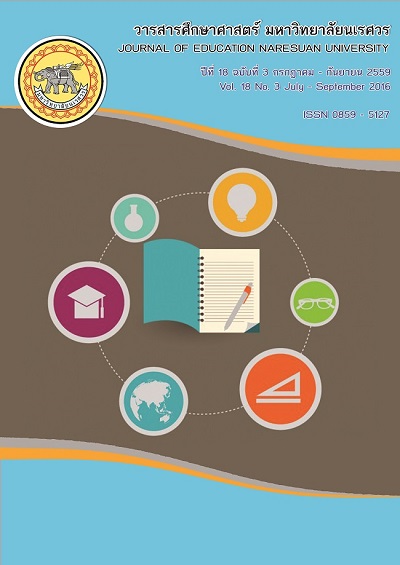THE EFFECTS OF PROJECT-BASED READING INSTRUCTION ON ENGLISH READING ABILITY AND INTERCULTURAL COMMUNICATIVE COMPETENCE OF UNDERGRADUATE STUDENTS
Main Article Content
Abstract
The purpose of this study was to investigate the effects of Project-based Reading Instruction (PRI) on English reading ability and intercultural communicative competence of Thai students. It also investigated the correlation between students’ English reading ability and intercultural communicative competence. This study employed a semi-experimental method. It was conducted for 14 weeks with one group of 32 students majoring in Tourism Management from a private university in Thailand, enrolled in an English reading course. The English reading ability test, intercultural communicative competence test, and the project-based reading portfolio rubric were constructed to measure students’ English reading ability and their intercultural communicative competence, and to examine the correlation between the two variables. The obtained data was analyzed by means of statistical paired-sample t-test and Pearson's correlation coefficient. In addition, a project-based reading instruction questionnaire and a semi-structured interview protocol were designed to elicit students’ opinions toward the intervention.
The results revealed that students’ scores from both tests had increased significantly through the use of the Project-based Reading Instruction, consisting mainly of the following five stages—1) preparation, 2) conducting research, 3) analysis of cultural differences, 4) project production, and 5) self-reflection on own learning. There were also significant correlations between English reading ability and intercultural knowledge, and English reading ability and intercultural attitudes. The integration of text, talk, and image played important roles in achieving positive results. The participants believed that PRI helped them to improve their English reading ability and intercultural communicative competence. Particularly, they thought that they had become more curious and open to learning more about other cultures.Article Details
The owner of the article does not copy or violate any of its copyright. If any copyright infringement occurs or prosecution, in any case, the Editorial Board is not involved in all the rights to the owner of the article to be performed.


